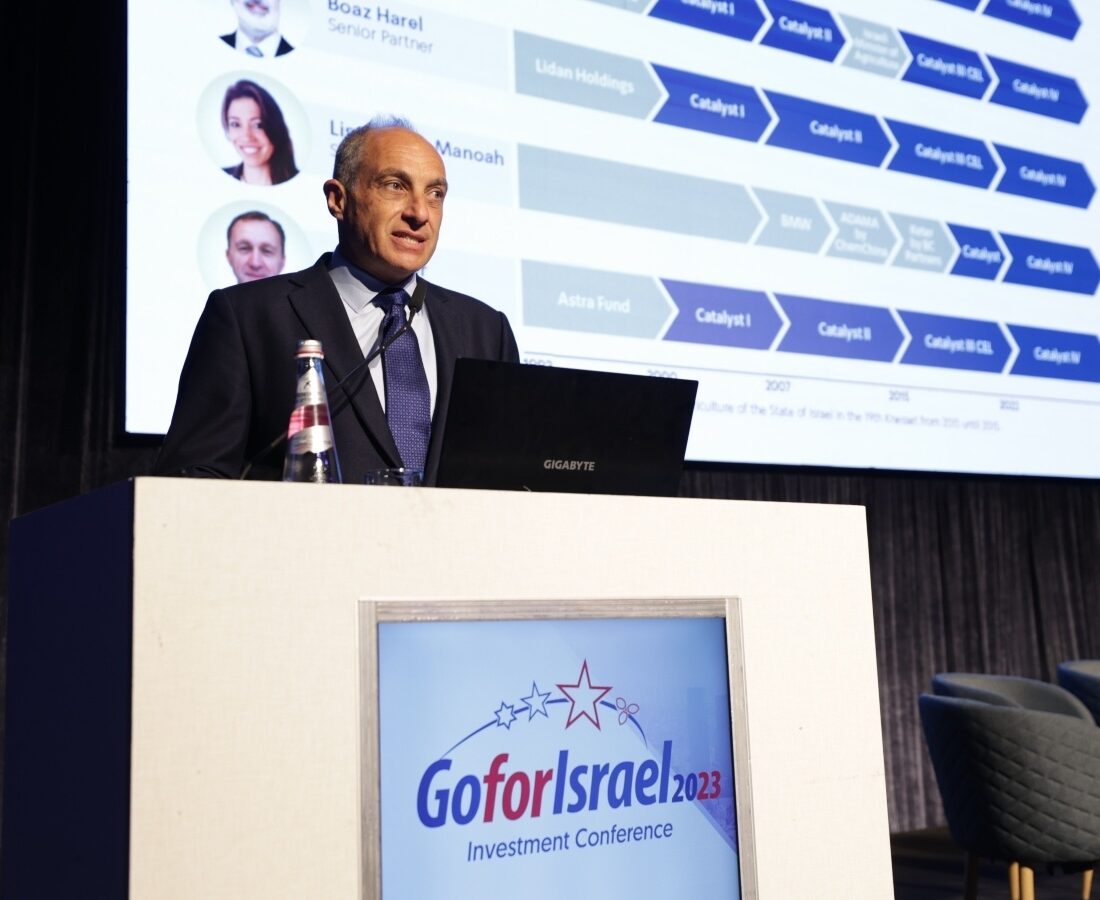In the 24 hours before the 30th annual GoForIsrael international investment conference on May 3 at the Tel Aviv Hilton, Gaza terrorists fired 104 rockets into Israel.
Yet the conference went on as if nothing had happened. More than 1,000 attendees from countries including the United States, China, Germany, Turkey, France, Mexico and Italy were on hand as Israeli President Isaac Herzog offered opening remarks.
Through the day, Israeli tech founders clocked 800 meetings with investors. Experts participated in panel discussions and entrepreneurs gave elevator pitches.
Lunch was served outdoors on the Mediterranean shore roughly 50 miles north of the Gaza Strip.
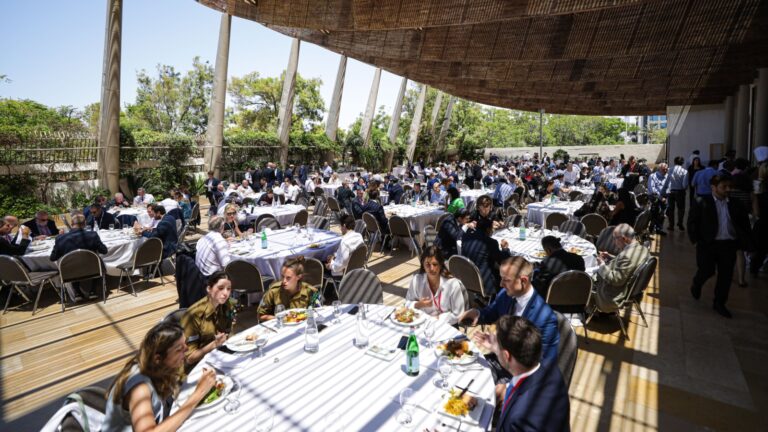
“Obviously, we have regional strategic challenges in front of us, which we saw last night and this morning. In spite of that, people came,” said Edouard Cukierman, chairman of Cukierman & Co. Investment House and founder and managing partner of Catalyst Investments, the conference organizers.
In an interview with ISRAEL21c, which was a media sponsor of the event, Cukierman noted that this year’s GoForIsrael drew a record 60 presenting startups and a record 1,100 registrants, 40 percent of them from overseas and 40 percent of them investors.
This is remarkable not only because of the local situation, Cukierman said, but also because of the many difficulties facing the global technology sector.
Challenging times
One panel discussion, “Fundraising in Challenging Times,” looked at multinational issues such as instability on stock exchanges and private equity markets; bank failures; rising inflation and interest rates; diminishing investments; continued war in Ukraine; and strained US-China relations.
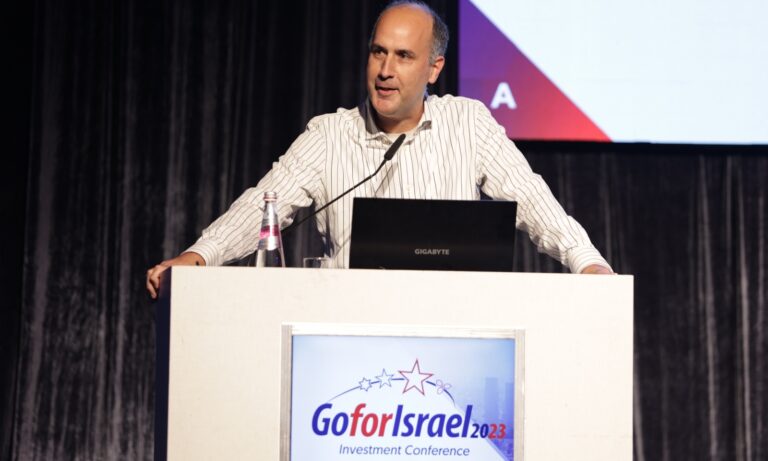
“From the company side, we see a lot of business and marketing efforts, a reduction of costs and burn rate, and a focus on revenue and profitability,” said moderator Yoav Etzyon, managing partner of Tel Aviv-based Amit Pollak Matalon law firm and co-head of its high-tech and venture capital department.
“In fundraising, we see more early-stage and seed investments than growth investments, and more intermediate investment instruments such as bridge loans. We see a lot of investors sitting on the fence watching if valuations will continue to decrease in the second half of 2023,” Etzyon related.
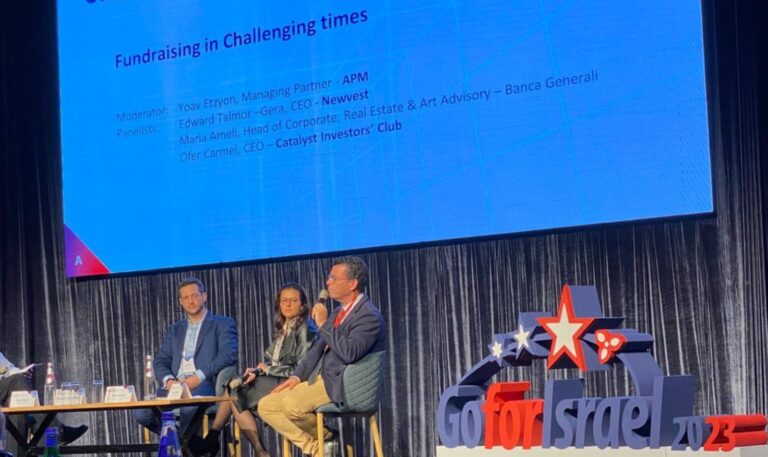
That said, Israel does have some unique disadvantages as well as advantages, according to Cukierman.
Growth engine sputtering?
“What may be more problematic for Israel is that its economy very much relies on the high-tech sector, which was the locomotive for economic growth for the past 20-plus years,” said Cukierman.
Another factor – increasing US isolationism and increasing influence of BRICS (Brazil, Russia, India, China and South Africa) on the world stage — was discussed at the “Impact of The Economic & Political Changes on The Israeli High-Tech Industry” panel.
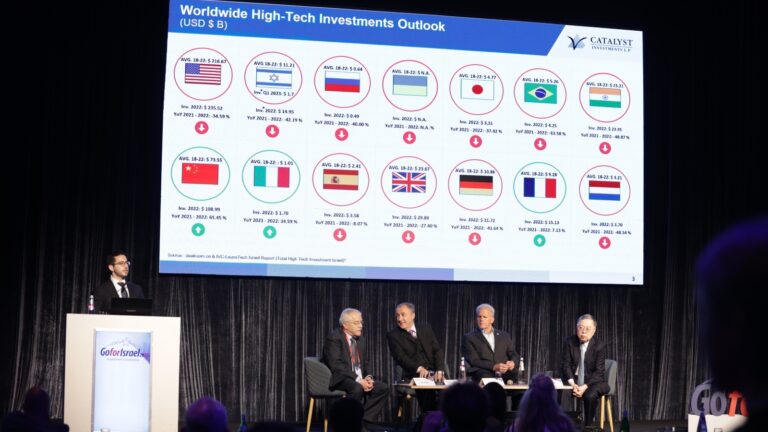
Though the resulting geopolitical complexity may be tricky for governments to navigate, it presents opportunities for Israeli entrepreneurs, said Luc Muller, vice chairman of Cukierman & Co.
“This country has technologies nobody else has and everybody wants,” said Muller.
Cukierman added that Israel is certainly affected by global economic events but is adept at handling crises of all types.
“Overall, Israel has managed to overcome problems and obstacles and is now not only stronger than ever in terms of its economic situation but we’re also the strongest country in our region … and recognized as a leading tech hub in the world.”
From his 30-year perspective of investing in Israel, Cukierman continued, there is reason for optimism.
“When I started in 1993, we had three venture funds and now we have 380 venture funds in Israel plus 100 international funds,” he said.
“Yes, the numbers have been going down — from a total $25 billion investment in 2021 to $17.5 billion in 2022 — but that $17.5 billion is still a record high after 2021.”
What about the protests?
I asked Cukierman if the massive public demonstrations in Israel regarding the government’s proposed judicial reform are making investors wary.
“As Israelis, criticizing the government is part of our DNA,” he said with a smile.
“The fact that so many people are expressing their view indicates that we are a vibrant democracy. Not all investors understand that, but many of them whom I meet appreciate that people can have different opinions and express them freely here, unlike in many other countries.”

In Cukierman’s opinion, the protests are “not what concerns investors most. We have challenges that are more important than the judicial reform.”
And this brings us back to rockets from Gaza and other security concerns.
In the wake of a terror attack that killed an Italian citizen in Tel Aviv on April 7, Cukierman relates, “one Italian investor called me and said he was worried about coming to the conference.”
He tried to put the situation into perspective for the investor, pointing out that unfortunately, terrible tragedies can strike anywhere and are more likely to be caused by accidents than terror – citing, for instance, the deaths of five members of an Israeli family last May in a cable-car crash in Italy.
Cukierman himself was recently the victim of a street crime in Chicago. “I was shocked because here [in Israel] you feel quite secure on the street,” he said.
In the end, the Italian investor did come to GoForIsrael along with a large delegation from Italy.
“Israel, in general, is a very safe country and people feel very comfortable here,” Cukierman concluded. “Even though this morning was tough, we still see full participation that is amazing. So, we have to be confident. We have to be optimistic.”
For more information on GoForIsrael, click here.




